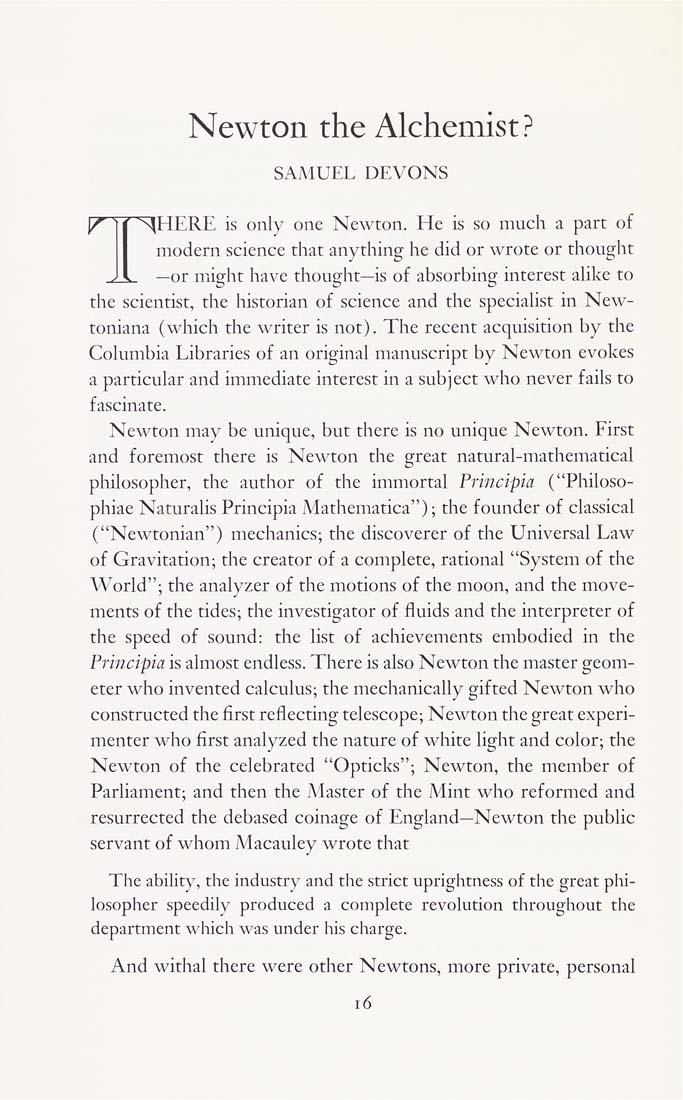Columbia Library columns (v.20(1970Nov-1971May))
(New York : Friends of the Columbia Libraries. )
|
||
|
|
|
|
| v.20,no.3(1971:May): Page 16 |

Newton the Alchemist ?
SAMUEL DEVONS
r
j/" ](■ ^HERE is only one Newton. He is so much a part of
modern science that anything he did or wrote or thought
—or might have thought—is of absorbing interest alike to
the scientist, the historian of science and the specialist in New-
toniana (which the writer is not). The recent acquisition by the
Columbia Libraries of an original manuscript by Newton evokes
a particular and immediate interest in a subject who never fails to
fascinate.
Newton may be unique, but there is no unique Newton. First
and foremost there is Newton the great natural-mathematical
philosopher, the author of the immortal Principia ("Philoso-
phiae Naturalis Principia Mathematica"); the founder of classical
("Newtonian") mechanics; the discoverer of the Universal Law
of Gravitation; the creator of a complete, rational "System of the
World"; the analyzer of the motions of the moon, and the move¬
ments of the tides; the investigator of fluids and the interpreter of
the speed of sound; the list of achievements embodied in the
Principia is almost endless. There is also Newton the master geom¬
eter who invented calculus; the mechanically gifted Newton who
constructed the first reflecting telescope; Newton the gteat experi¬
menter who first analyzed the nature of white light and color; the
Newton of the celebrated "Opticks"; Newton, the member of
Parliament; and then the .Master of the Mint who reformed and
resurrected the debased coinage of England—Newton the public
servant of whom Macauley wrote that
The ability, the industry and the strict uprightness of the great phi¬
losopher speedily produced a complete revolution throughout the
department which was under his charge.
And withal there were other Newtons, more private, personal
i6
|
| v.20,no.3(1971:May): Page 16 |







